My Turn: We’re directly in path of green energy ‘steamroller’

The Massachusetts State House in Boston. MATT STONE/BOSTON HERALD/TNS
| Published: 07-16-2024 5:42 PM |
As the Healey administration and state Legislature are going full speed ahead for carbon-free “green energy,” the details for how to get this done are emerging. And Boston is on a collision course with our towns in western Massachusetts and elsewhere.
The Senate bill S. 2838, voted on a couple of weeks ago, assigns the details of energy generation siting to the Department of Energy Resources for “small” projects under 24 megawatts. It leaves permitting with the towns, but (section 22 (b)) states, “The department shall establish standards, requirements and procedures governing the siting and permitting of small clean energy infrastructure facilities by local governments.” That includes controlling pretty much everything. Our agencies want to write the rules, but leave the work to us.
Given that almost all solar and onshore wind projects are “small,” if some version of this bill passes, pretty much any solar or land-based wind project would have to be given the state-determined rubber stamp by the towns. Larger projects would get permitted directly by the state.
Why is this even happening? Because our local town boards, following the guidance of citizen-supported bylaws, try to protect our towns from inappropriate proposed energy projects. We have witnessed these conflicts for a while. Deep-pocketed developers descend upon smaller, poorer rural communities who they think are sitting ducks and will just permit their projects.
While some see our towns as weak and defenseless, what we have seen are dedicated citizens and boards working diligently trying to hold the line — often too successfully for the likes of the project owners. And that puts us in the way of the green energy steamroller. We are now “the problem.”
To fix this mess, the state wants to take control, and that means changing laws that have afforded us our cherished local control.
My question is, who knows best? Towns are not opposed to small-scale solar. We’re not opposed to energy conservation. We are not dumb enough to not see through the power plays and tactics that developers use to get what they want (it’s our ratepayer money handed to them for state subsidies, by the way).
Article continues after...
Yesterday's Most Read Articles
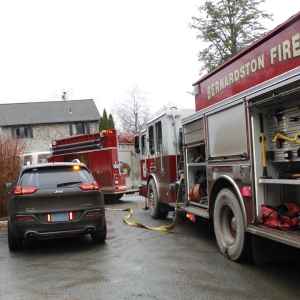 Leyden house fire reignites on Monday
Leyden house fire reignites on Monday
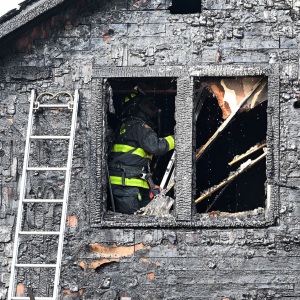 Two dogs, three cats killed in Orange fire
Two dogs, three cats killed in Orange fire
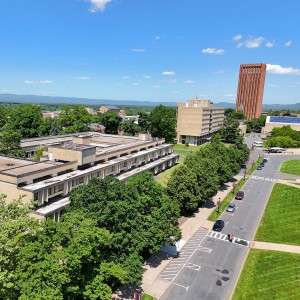 ‘Whole campus’ approach: UMass working to help six students whose visas, status were revoked
‘Whole campus’ approach: UMass working to help six students whose visas, status were revoked
 PHOTOS: Hundreds participate in ‘Hands Off!’ standouts across Franklin County
PHOTOS: Hundreds participate in ‘Hands Off!’ standouts across Franklin County
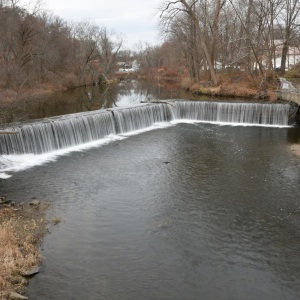 Greenfield Historical Commission calls for public hearing on dam project
Greenfield Historical Commission calls for public hearing on dam project
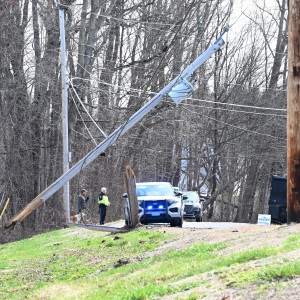 PHOTOS: Truck strikes utility pole, closing River Road in Deerfield
PHOTOS: Truck strikes utility pole, closing River Road in Deerfield
We don’t think chopping down forests in the name of protecting the planet makes sense, like in Shutesbury. We don’t think our rural and forested areas should host huge storage batteries in towns with no water supplies to put out battery fires if they start burning, like in Wendell. Why have such huge batteries to begin with, that don’t generate energy?
And we think we need more local food production, rather than rent-a-sheep schemes on our prime farmland, to “qualify” for your ratepayer subsidies, while wrecking the most fertile agricultural soil along the Connecticut River for solar panels, like in Northfield.
Sadly, our government, which may as well live on some other planet, disagrees with us.
The House of Representatives is likely to vote on their version of this bill on Wednesday. We have only a tiny window of opportunity left to have a say.
Please contact your state representative and make it clear that we know better than Boston. Our resources should not be exploited for an ever-increasing demand for consumption. Leave control of energy siting that we now have with us. And demand that those few words in the state law called the “Dover Amendment” — passed in 1985 related to solar, and written when large-scale solar was not a consideration — words that are used against us when we try to protect our natural resources, gets stricken from the law.
Please call your representative today. Found online at malegislature.gov/Search/FindMyLegislatorhere.
Gloria Kegeles lives in Wendell.






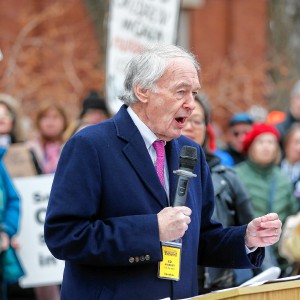 My Turn: Fighting for our farmers
My Turn: Fighting for our farmers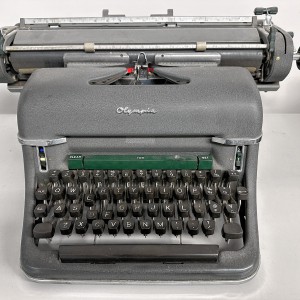 My Turn: Impact of USAID cuts in Uganda
My Turn: Impact of USAID cuts in Uganda Karen Traub: What to do when tax dollars fund millionaire golf games instead of libraries
Karen Traub: What to do when tax dollars fund millionaire golf games instead of libraries Michael Magee: These are the times that try men’s souls
Michael Magee: These are the times that try men’s souls
